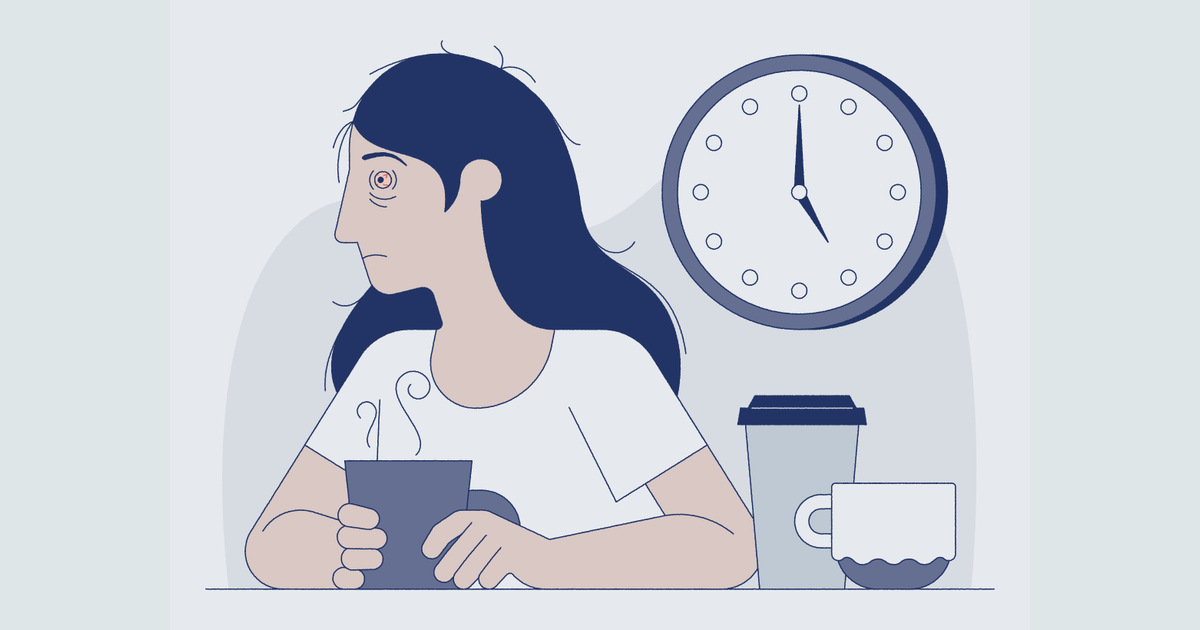Feeling like a walking zombie due to sleepless nights? Here’s how to handle sleep deprivation from the experts that will help you get through the day!
Whether it’s insomnia, noisy neighbors, or a restless toddler, getting a solid night’s sleep can feel like an impossible dream. But fear not, because experts have some tips to help you navigate the day, even when you’re running on empty.
Recognizing Sleep Deprivation
Russell Foster, a circadian neuroscience professor at the University of Oxford, highlights three telltale signs of sleep deprivation:
- diminished daytime performance
- excessive sleeping on free days
- insatiable craving for naps.
Guy Meadows, founder of the Sleep School, emphasizes the importance of waking up feeling refreshed and ready to tackle the day.
Here’s how to handle sleep deprivation, according to an expert
1. Is Caffeine Your Friend or Foe?
If you find yourself guzzling coffee, take heart. It’s a fantastic stimulant, but it comes with a caveat. Caffeine, while boosting alertness, can lead to jitters and affect glucose control, especially if consumed after sleep-deprived nights.
Meadows suggests limiting caffeinated beverages to the morning and switching to decaf or herbal alternatives later in the day.
2. Fuel Your Body Right
Resist the urge to reach for sugary snacks when tired. Instead, opt for a balanced, plant-packed breakfast. A mix of wholegrain carbohydrates, fruits or veggies, protein, and healthy fats is ideal. Nuts also make for a nutritious choice.
3. Combat the Cravings Trap
Sleep deprivation can mess with appetite hormones, increasing hunger-inducing ghrelin while reducing the “fullness” hormone, leptin. This creates a perfect storm for overeating, often junk food. Combat this by choosing fiber-rich foods like whole grains, fruits, and vegetables, as they keep you feeling full without excess calories.
4. The Power of a Short Nap
Foster recommends a 20-minute power nap immediately after lunch to enhance cognitive performance. However, avoid longer naps as they might lead to deeper sleep and grogginess.
While tempting, weekend lie-ins can disrupt your sleep schedule. Try to maintain a consistent wake-up time even on weekends to sync your body clock and benefit from crucial morning light.
5. Light therapy can be a game-changer
In winter, consider using a light box for light therapy, which can boost mood and enhance your body’s natural rhythms. Foster encourages getting at least 10 minutes of natural light daily.
6. Gentle Exercise
When exhausted, listen to your body and opt for low-intensity activities like yoga, pilates, tai chi, or gardening. Intense workouts may not be the best choice when sleep-deprived.
7. Managing Irritability
Awareness is key. Accept that sleep deprivation can make you irritable, and try to avoid situations that rely heavily on empathy when you’re tired. Save important conversations for well-rested moments.
Long-Term Consequences
In the battle against sleep deprivation, remember that small changes in diet, routine, and lifestyle can make a significant difference. So, even if you’re dealing with insomnia, noisy neighbors, or restless tots, these expert tips can help you power through your day with more energy and focus.
While short-term sleep deprivation can be managed, long-term effects are concerning. It can lead to cognitive decline, cardiovascular issues, depression, and even an increased risk of cancer. Foster recommends frequent health check-ups for chronic sleep-deprived individuals.
Share your thoughts on how to handle sleep deprivation in the comments below!








Leave a Reply
You must be logged in to post a comment.